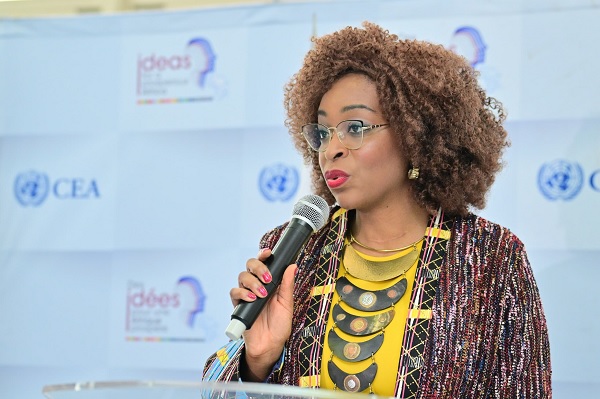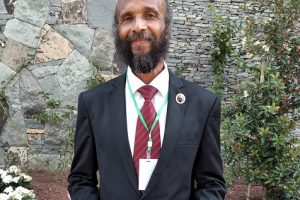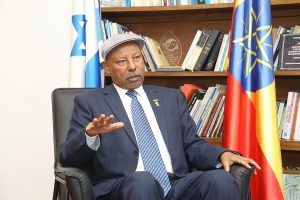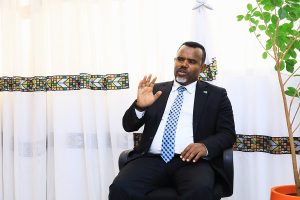
Language is a bridge that brings together people of different ethnic and linguistic backgrounds. It enables the exchange of cultural assets, indigenous knowledge, cooperation, fraternity among others.
The Francophonie refers to men and women who share a common language: French. We estimate over 321 million French speakers across five continents. The Francophonie is also an institution, dedicated since 1970 to promoting the French language and political, educational, economic and cultural cooperation among the 88 member countries of the International Organization of La Francophonie (OIF).
The Charter of the Francophonie defines the institution; its highest authority, the Summit of the Francophonie; and its cornerstone, the Secretary General of the Francophonie, a position currently held by Louise Mushikiwabo.
The OIF implements multilateral francophone cooperation projects alongside the Parliamentary Assembly of the Francophonie [Parliamentary Assembly of the Francophonie] and four operating agencies: Agence universities de la Francophonie [Association of Francophone Universities], TV5MONDE, International Association of Francophone Mayors [International Association of Francophone Mayors], and Université Senghor [Senghor University] in Alexandria.
The Francophonie’s mission mandates are: to promote the French language and cultural and linguistic diversity; to promote peace, democracy and human rights; to support education, training, higher education and research; to foster economic cooperation to bolster sustainable development.
UN French Language Day is observed annually on 20 March. The event was established by UN’s Department of Public Information in 2010 “to celebrate multilingualism and cultural diversity as well as to promote equal use of all six official languages throughout the Organization”
This year’s French Language Day is celebrated on 20 March, 2024 throughout the world. In Ethiopia the day was marked at the United Nations Economic Commission for Africa (UNECA). This year’s French Language Day is marked with the theme “Be creative, be innovative and be enterprising in French”.
Speaking via a representative, UNECA Executive Secretary Claver Gatete made a remark that “at first glance, language has nothing to do with it. But on closer inspection, language lies at the heart of creation, innovation and entrepreneurship. All these initiatives involve knowledge, its acquisition and use. We could even say, with full confidence, that language is the vector of creativity, innovation and entrepreneurship. It has been said that if you master the language, you master the science. Far from being a simple tool of communication, language plays an important role in society. It is thought and action or, you might even say, it is at both the beginning and the end of action”
Today’s guest of The Ethiopian Herald is Nefertiti Mushiya Tshibanda, Permanent Representative of the International Organization of la Francophonie (OIF) to the African Union and the Economic Commission for Africa. During her stay with EH, she has explained about OIF, its works of bringing together French speaking countries to cooperate beyond language and culture, as well as friendship with countries out of the organization, like Ethiopia. Enjoy reading!
Could you tell us about a little introduction about organization Francophonie countries, its activities?
Yes, the organization international Francophonie is an intergovernmental organization that brings about 88 countries and government that we share one thing in common, which is the French language, but also share common values.
And through the French language, we promote these values. And the programmes are geared to reinforce capacity within a member state to advance the development agenda, whether it be in education, and the establishment of rule of laws, preservation of the environment and climate.
We also have to promote the cultural diversity that we find within that Francophone community that is spread out through all those countries on the five different continents.
As you told me, the organization cooperates with countries in different sectors like climate change, education, culture science is, so can you tell you exemplary activities and contributions, especially in developing countries in Africa?
Absolutely, the majority of our programmes are implemented on the continent. Right now we are well aware of the demographic dynamic that is going on in the continent. So out of the 88 countries that are members 33 countries of the continent. We have in Dhaka, a francophone institution for education, and training.
Thus, this institution, is the one that implements all of our development programmes on the continent. So we come and build capacity to the Ministries of Foreign Affairs. But we also do the promotion of early learning in both French and the local language; not to say national but local languages of our different countries, because studies have shown that if a child begins his education in his local language, and then by the second or the third year of primary education introduced a foreign language, he is more likely to be able to succeed in his education. So we promote that. We also promote what we call the politic of reading, reading, politics, public reading, we have established throughout our Francophone space, about 387 Centre for reading in the countries and we accompany also our countries on the continent to develop what we call a public reading culture, public meeting policies.
We also have an institution of Francophonie for sustainable development, which has a headquarter in Quebec and we also accompany the countries to find innovative ways to combat the effects of climate change within their countries. Today, we have a programme that we launched a few days ago to combat [climate change]; help capacity building on some of the countries and financial negotiation when it comes to climate, climate financial negotiation. But one of the things that we also value is the shared common value that exists, we promote that cultural diversity and cultural linguistic, that all of these different countries have and we come together to celebrate that diversity through common goals and common values that we share. We also accompany our countries to sustain a good governance, while accompanying them in the electoral processes, and we also try to promote the inclusion of women and youth in the development process, include them in all the decision making for us so that they can be included in the decisions that are taking place in their countries, when it comes to certain countries that are in sensitive security situation, or in Active Democratic situation we also accompany these countries in including women and youth in the peacebuilding processes as well.
So just the last point you raised is about 88 countries under this organization. These countries are culturally diverse and have varying levels of economic situations. So What about just bringing to the fore the cultural and linguistic assets of developing countries, like in Africa? How do you examine or explore it? And how do you promote it?
We promote it through different avenues. We promote that through a lot of conferences, but you just mentioned the economic aspect. We organize a lot of economic missions, where we bring together the business sector in specific areas to visit some of these countries. Since 2020, we’ve launched this programme that’s called economic mission. We started bringing countries from the continent from the south from all of the francophone space. And the first mission was in Cambodia, and Vietnam.
In 2021, we did a mission in Central Africa, in Gabon, and Rwanda. And this year, last year, we did an economic mission in Northern Africa and this year will be in Romania and in Quebec. So we also tried to bring together the business sector to be able to promote businesses within the organization.
Could you tell us about the relation of this Francophonie organization with countries outside the organization? What kind of relations do you have?
It is an intergovernmental organi zation; so the majority of our programmes are exclusively implem ented in the countries that are members of the organization, but there are multiple countries that have asked to join the organization, and also throughout also our embassies, embassies of member states that are spread all over the world and sometimes in nonmembers country like here in Addis Ababa, we try to continue to promote because we know that Ethiopia has a long standing relationship with the French language we know that there is a French community in Ethiopia in Addis Ababa and others. We also try to continue to promote because we have member state but we also have friends of the francophone. We try to promote by having cultural activities that continue to help and then to promote the common values that we have also for member states.
Thank you very much.
Thank you so much.
BY ZEKARIAS WOLDEMARIAM
THE ETHIOPIAN HERALD SATURDAY 23 MARCH 2024





